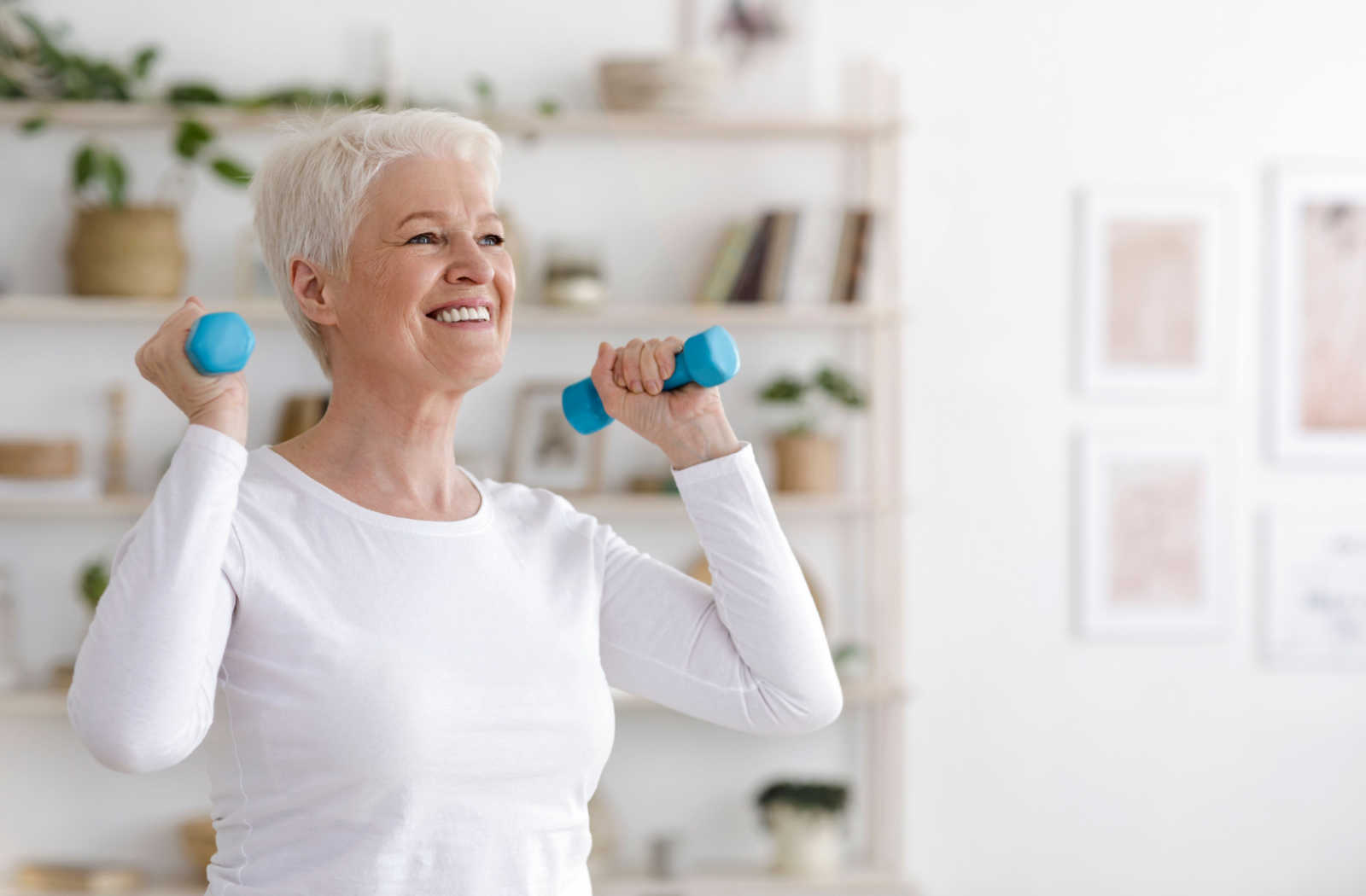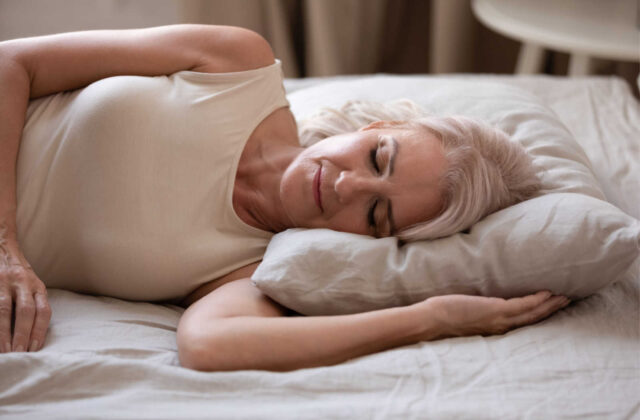Changes to sleeping patterns can affect senior lifestyles. Many older adults often find themselves waking up early or having difficulty falling asleep. But how much sleep do older adults actually need?
Older adults should aim for 7-9 hours of sleep per night and establish good sleep hygiene practices in a healthy sleeping environment.
This blog post will explore the benefits of sleep for many kinds of senior lifestyles and offer some valuable sleep tips that can help you rest better.
Benefits of Sleep for Older Adults
Sleep plays a vital role in the health of older adults. While we age, our bodies undergo several changes that may impact our ability to get quality sleep. However, it’s essential to understand that getting enough sleep is crucial at any age.
Let’s look at some of the many benefits of sleep for older adults.
Boosting Your Immune System
Sleep is one of the most essential aspects of maintaining a healthy immune system.
Getting sufficient sleep improves the body’s ability to fight infections and diseases. Older adults are particularly vulnerable to infections, making sleep all the more important.
Strengthening Your Emotional Processing
Sleep is essential for emotional processing. Getting enough rest can enhance how you process and cope with various emotions, which can help regulate your mood and aid in managing mood swings.
Improving Your Mood and Decreasing Stress
Frequent lack of sleep can lead to declines in mental health and increase the risk of depression, anxiety, and irritability. Quality sleep can help keep you in a good mood and reduce the likelihood of stress build-up. Adequate sleep also helps restore the ability to handle stressors.
Improving Memory Function
Getting sufficient sleep supports concentration and other cognitive abilities, such as memory function. Adults aged 65 and older with sleep disturbances tend to have a higher risk of progressive cognitive decline.
Improving Cellular Growth and Repair
Some theories suggest sleep can trigger the production of growth hormones that assist in cellular repair and regeneration. This understanding supports the conclusion that brain cells repair and restore their connections during deep sleep, which is essential for good brain function.
Repairing Tissue and Muscle Recovery
As we age, our bodies can become more susceptible to injury and illness. Sleep plays a critical role in muscle recovery. During deep sleep, the body releases hormones that aid in repairing damaged tissue, fighting off infections, and reducing inflammation.
 Sleep Tips for Seniors
Sleep Tips for Seniors
You can follow certain strategies and habits to get restful and rejuvenating sleep. These tips may help you sleep better and wake up feeling refreshed.
Stick to a Regular Bedtime
Going to bed and waking up at the same time every day can help regulate your body’s internal clock. Your body can get accustomed to the routine and learn when it’s time for sleep and when it’s time to wake up.
Take a Warm Bath
Another effective sleep tip for seniors is taking a warm bath before bedtime. A warm bath can help slow down your body and relax your muscles, making you feel drowsy.
Avoid Screens Before Bed
Turn off your electronic devices at least an hour before bedtime. The blue light emitted from phones or laptops can stimulate your brain and make it hard to fall asleep.
Avoid Long Afternoon Naps
While a long nap may sound tempting, it’s best to avoid it. Long naps can make it harder for you to fall asleep at night and lead to a cycle of restless sleep.
Drink Less Fluid at Night
While it’s important to stay hydrated, drinking too much fluid before bedtime can lead to frequent trips to the bathroom and disrupt your sleep.
Exercise Regularly
Regular exercise is essential for your overall health, including your sleep. Exercising regularly can help regulate your sleep-wake cycle, but you should also avoid exercising for at least 1-2 hours before going to bed.
How Much Sleep Should You Be Getting?
It’s important to note that older adults still require a good night’s sleep just as much as younger individuals do. The National Institute on Aging recommends that individuals over 65 strive for 7-9 hours of restful sleep each night.
Sleeping is crucial for maintaining overall health and well-being, regardless of age.
Sleep and Live Well at The Neighborhood in Rio Rancho
Older adults can work toward getting enough sleep by establishing good sleep hygiene practices and by paying close attention to the environment they’re sleeping in. Whether older adults enjoy life in a senior living community or at home, having a comfortable and restful space is essential for getting a night of deep and satisfying sleep.
Ultimately, getting enough sleep is about providing opportunities for restful slumber and allowing the body to get enough rest each night. Even when people are feeling energized during the day, there may be potential benefits associated with adjusting nightly sleeping hours.
Schedule a tour of The Neighborhood in Rio Rancho to see how our community can be the right place for peaceful and revitalizing slumber!


